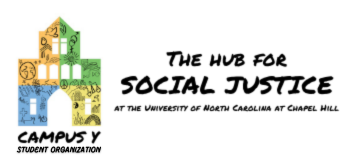
Black Liberation Teach-In Series Presents: Afrofuturism
May 10, 2016 • • No CommentsFor this event, UNC Black Liberation decided to go with the title This World Ain’t Our Home: Afro-Futurist Galaxies of Black Art and Thought. As someone who knew very little of Afrofuturism, I was interested to see exactly how the event unfolded, and I was not disappointed.
To begin, the facilitators gave several definitions and interpretations of Afrofuturism, as a background before further exploration could start. According to Ingrid LaFleur, Afrofuturism is, a “way of imagining cultural futures through a black cultural lens.” Others have described it as the “space between the slave ship and the spaceship.” Both of these definitions propelled the discussion into new spaces, into undiscovered galaxies and areas that have been untouched by some of the negative social structures that we have succumbed to in the present world.
One way to explore such places is through novels, reimagining the past and creating a new future where injustices, particularly against black women, are challenged and reconstructed. Author Octavia Butler is one prominent member of the Afrofuturist movement, with novels and short stories that address these issues. However, books are not the only medium through which Afrofuturism is divulged. Harriet Tubman was one of the first proponents of this movement, although it wasn’t named at that time. She chose to believe in a future where she and people like her would no longer be enslaved. She chose to believe that one day, contrary to all the evidence that appeared before her, slavery would no longer exist. It is through this same type of imagination, coupled with action, that modern activists and supporters hope to create a new future where these injustices aren’t commonplace, not accepted as the norm. Sun Ra is also commonly grouped with such Afrofuturists, as are musicians Erykah Badu, Janelle Monae, local artist jocElyn ellis, and even Kendrick Lamar.
In imagining this new future, one the actively digresses from the present course, the Afrofuturist movement encourages us to interrogate. According to this teach-in series, we are to interrogate modernity, and the belief that all the atrocities of the past, colonialism and slavery included, were necessary to bring us to the “beautifully modern” state of today. Interrogate modernization, where the U.S. is esteemed as the pinnacle of progress, while other countries are considered third world, or underdeveloped because they don’t fit the high mass consumptions ideals of the United States. Interrogate the intersection between modernity and modernization, where black geographies, whether in Africa, Latin America, the Caribbean, or anywhere else, are considered backwards. Examine why these places filled with blackness are often synonymous with void, lack, nothingness, and ignorance. By questioning these things, Afrofuturism hopes to allow an imagination that creates a new world that has a sense of belonging, instead of otherness. In addition to eliminating this feeling of otherness, it pushes to eliminate the naturalization of white supremacy and black subjugation.
At the end of the discussion, with heads filled with so much new and revisited knowledge, there was an invitation to interpret Afrofuturism in individual and collective ways, using hands-on methods. Through music, dance, art, and writing, everyone split into sections to work with the medium that most loudly called to them, only to come back together at the end and weave these expressions into a masterpiece that could envision Afrofuturism, in a small way, for some of UNC. In this way, the imagination, the foundation of Afrofuturism, was fostered, with the hopes that this imagination is transformed into plans, which are then transformed into action.

